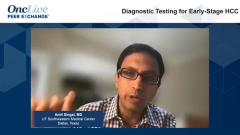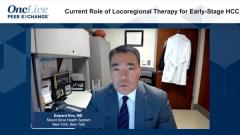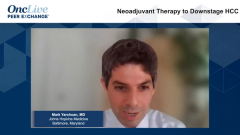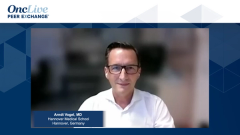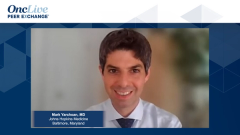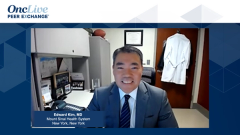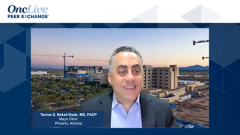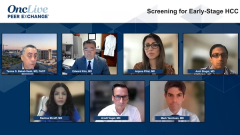
The COSMIC-312 Study in Advanced HCC
Thoughts regarding the COSMIC-312 study of cabozantinib plus atezolizumab as frontline therapy for advanced hepatocellular carcinoma.
Episodes in this series

Tanios S. Bekaii-Saab, MD, FACP: We have a slew of studies, studies galore, a lot of them look similar, and others look a little different—from HIMALAYA, IO [immunotherapy] plus IO, to CheckMate, to COSMIC-312, to LEAP. We just heard about COSMIC-312 through a press release, so we’re looking forward to seeing the full data. There may have been positive PFS [progression-free survival] in the interim analysis, but the OS [overall survival] end point was missed. This is one of the first to report. What are your thoughts about all these combinations, and specifically your thoughts about COSMIC-312? The other thing, perhaps, to include in your thoughts is the level of toxicity, which is a bit different with TKI [tyrosine kinase inhibitor] plus.
Rachna Shroff, MD: The fact that there are meetings now related to how do we sequence these therapies, it’s a wonderful problem to have. At the end of the day, unfortunately, for better or for worse, these studies are all being compared to either sorafenib, or the LEAP study being compared to lenvatinib, and so putting all of this into the context of the post-IMbrave data is going to be a bit hard. There is no question, as Mark said, that is a strikingly positive study, and just like I have to find a reason not to give FOLFIRINOX [folinic acid, fluorouracil, irinotecan, oxaliplatin] in pancreatic cancer, you’ve got to find a reason not to give atezolizumab plus bevacizumab at this point. Figuring out how COSMIC-312, or LEAP, or HIMALAYA, how all of those things are going to compare in the post-atezolizumab plus bevacizumab world, is going to be the tricky part. The COSMIC-312 PFS hit is great. As you said, at least at this first analysis, there is not a positive OS signal. So again, with dramatically separating curves with atezolizumab plus bevacizumab for both PFS and OS, this is not necessarily us saying absolutely, cabozantinib plus atezolizumab needs to be part of our armamentarium. That’s my feeling….
Tanios S. Bekaii-Saab, MD, FACP: We haven’t seen the survival data.
Rachna Shroff, MD: Correct. We haven’t seen anything. We won’t even really know, but it doesn’t necessarily automatically say, we’ve got to win over atezolizumab plus bevacizumab. And that’s the complicating part of this.
Tanios S. Bekaii-Saab, MD, FACP: What would excite you to say, “You know what? I’m going to use a TKI plus IO. This is a good reason for me to do that.”
Rachna Shroff, MD: It actually speaks more to the whole safety and the quality of life, and reasons for not using bevacizumab, for instance, versus a TKI. Those are the things that would factor in for me. HIMALAYA is going to be an important study because you’re not looking at a TKI, you’re not looking at a VEGF inhibitor. In these patients who are always worried about bleeds, I do think those are the data that will be very interesting and will be a little more clear how and when to use that, if it’s a positive study, as opposed to some of the other combinations.
Transcript Edited for Clarity


